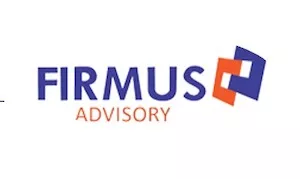- within Consumer Protection topic(s)
- within Consumer Protection topic(s)
- within Consumer Protection, Finance and Banking and Immigration topic(s)
The National Agency for Food and Drug Administration and Control (NAFDAC) is the regulatory body responsible for ensuring the safety and efficacy of cosmetic products in Nigeria. This article explores labeling requirements mandated by NAFDAC for cosmetic products, providing a clear guide for manufacturers as well as importers of cosmetic products. Adhering to these regulations also help businesses meet their legal obligations, enhance consumer trust, and avoid penalties.
NAFDAC Labelling Requirements for Cosmetic Products
General Labelling Information
Every information on the label of the cosmetic product must be informative, accurate, prominent, legible, and distinct. The font size and style should ensure clarity, with enough contrast against the background without being obscured by designs or crowded.
Also, the name of the product and net content should be proportionate to the predominant features on the label. Additionally, information on the label must not be false, misleading, or deceptive, and must not create the wrong impression regarding the product's character, quality, or origin.
Further, labels should not include unnecessary information that could interfere with the placement of required details, and must not reference or imply connections to other products falsely.
All labeling information must be provided in English, with other languages optionally included.
Product Identity
Where there is an outer and inner label, both must display the name of the cosmetic product, accurately reflecting the nature of the product. If a common name exists for the product, it must be used alongside the brand name. Otherwise, an appropriate descriptive name should be used.
Coined or fanciful names must not be misleading and should be accompanied by a descriptive term.
List of Ingredients
A complete list of ingredients must be written clearly on the outer label and inner label (where applicable), listed in order of predominance. If there is no outer packaging, the ingredient list should appear on the inner label.
Any fragrance, color, or flavor ingredients may be listed after the other ingredients and should be identified by their international names or codes. Ingredients below 1% concentration may be listed in any order after those above 1%. In the same vein, all components of multi-ingredient ingredients must be included in the list.
For products with multiple color shades (e.g., decorative cosmetics), their coloring agents should be listed and may be preceded by the phrase "may contain."
Further, ingredients must be prominently displayed, readable, and understood under normal purchase conditions.
If a cosmetic product contains active drug ingredients, it must comply with NAFDAC's Drug Labeling Regulations 2019. An active drug ingredient is any substance that has a pharmacological effect on the body, such as treating, preventing, or diagnosing a condition, e.g. zinc oxide, titanium oxide in sunscreens; benzoyl peroxide in acne treatments etc. Any ingredient that is known to cause hypersensitivity must be declared on the label.
Also, if there are multi-packs, the ingredients for each product can be listed separately or combined. Where labeling on the outer packaging is impractical, the list shall be given on a leaflet, label, tag, tape or card enclosed with the product and the consumer should be referred to the text either by abbreviated information or by a special symbol on the outer pack.
If the products within the multi-pack have containers which are individually labeled or printed with an ingredient list, there is no need for a separate leaflet, label, tape, tag or card. In the case of transparent packaging, where the ingredient labeling of the products is clearly visible, separate labeling is not required.
Lastly, impurities of the raw materials used; subsidiary technical materials used in the preparation of the cosmetic product but not present in the final product; and materials used in strictly necessary quantities as solvents or as carriers for perfumes and aromatic compositions can be excluded from the labelling.
Net Content
The average net content of any cosmetic product must be declared in metric units on both the inner and outer labels. Liquids must be measured by volume; solids by weight or count, and semi-solids by weight or volume.
For products in pressurized containers, the net quantity should include the propellant. Propellants are gaseous or liquid substance used in aerosol products to help expel the contents of a container in the form of a spray, foam, or mist.
Accurate quantity declarations should account for minor variations due to handling or manufacturing practices.
Details of the Manufacturer
The manufacturer's name and full address must be clearly stated on both inner and outer labels. If the product is processed in another country, that country is considered the country of manufacture. For containers of 10 cm or less, the following must be included:
- Brand name
- Product identity
- Lot or batch number
- Net content
- Expiry date
- Manufacturer's name and address
- NAFDAC registration number
Batch Number
The batch number should appear on both the inner and outer labels, and if space is limited, it can appear on the inner packaging only.
To view the article in full click here
The content of this article is intended to provide a general guide to the subject matter. Specialist advice should be sought about your specific circumstances.


